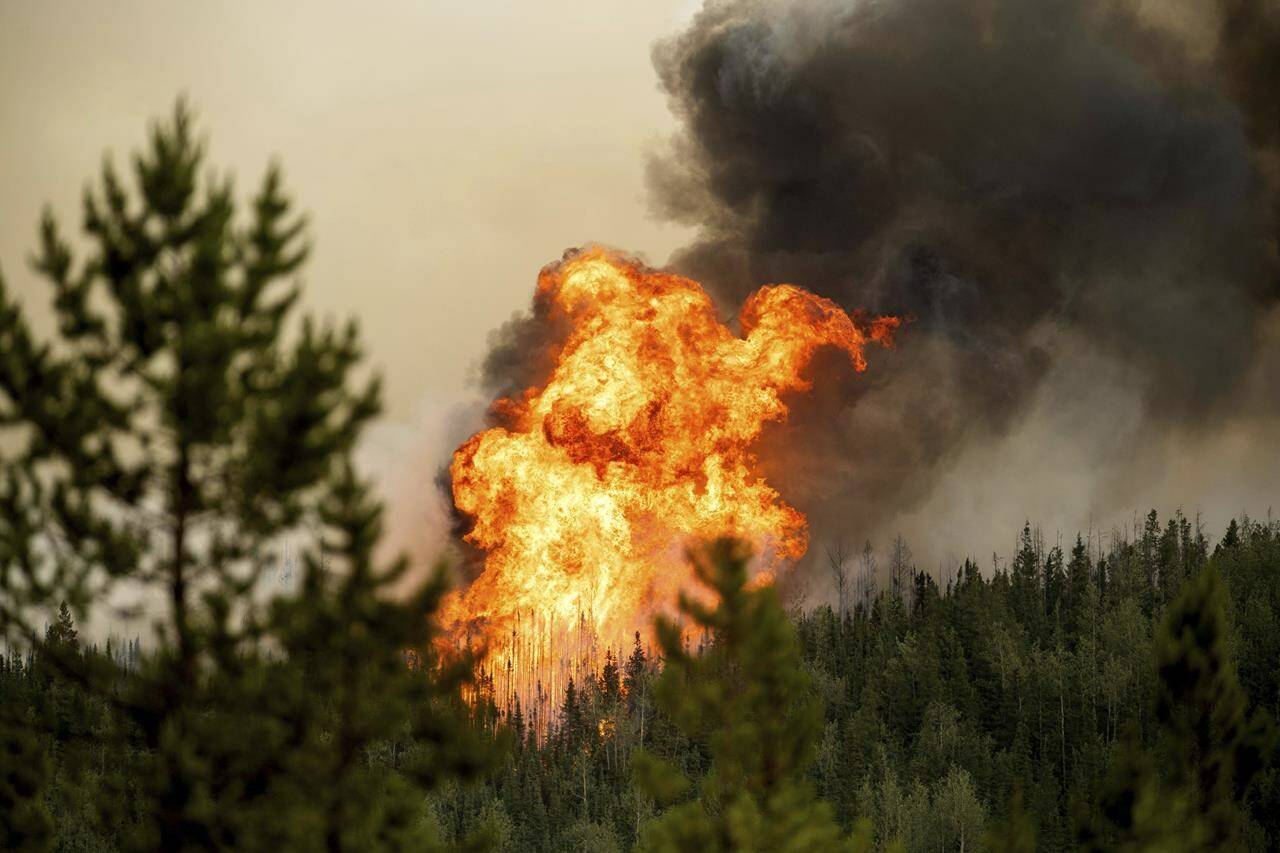The federal government is forecasting a “marathon” wildfire season to continue across much of Canada this month, with the potential for the fire season to extend into September for southern B.C., the Prairies, Northwest Territories and Western Ontario.
Officials say Canada is experiencing an “unprecedented” fire season, charring 134,000 square kilometres to date, more than six times the 10-year average.
“This summer has turned into a challenging marathon,” Michael Norton, a director general of Natural Resources Canada, said Friday at a national wildfire briefing. “Unfortunately, bottom line: fire season is not over.”
Data released at the briefing shows that as of Aug. 10 there have been 5,595 wildfires across Canada, releasing the equivalent of more than one billion tonnes of carbon dioxide emissions.
Hundreds of homes were destroyed by wildfires in Nova Scotia earlier this year, and about 4,000 firefighters in B.C. are currently battling hundreds of blazes, some of which have threatened communities, forced evacuations and destroyed properties.
Canada has already deployed 5,821 domestic firefighters and 4,990 international firefighters from 12 countries to battle wildfires across the country, said Norton.
Officials can’t predict how next year’s fire season will evolve, but the trend has been towards longer seasons and larger more aggressive fires, he said.
“The science is clear that longer, tougher fire seasons are going to be part of our future,” Norton said. “For sure all fire agencies recognize that there is an important message here about needing to adapt.”
Natural Resource Minister Jonathan Wilkinson announced in North Vancouver Friday the government will spend $400,000 as part of the first phase of a fire training pilot project.
It will train 25 instructors on how to deliver consistent and effective wildfire response training through a program at Kamloops, B.C., he said.
The International Association of Firefighters will also deliver 15 courses across five locations in Western Canada as part of the pilot project, training up to 325 structural firefighting personnel on urban interface wildfire training, said Wilkinson.
Four firefighters have died this summer battling wildfires in B.C., Alberta, and the Northwest Territories.
READ ALSO: B.C. gearing up for heat wave as majority of province remains in a drought
READ ALSO: 100,000 square kilometres burn in record-breaking Canadian wildfire season

